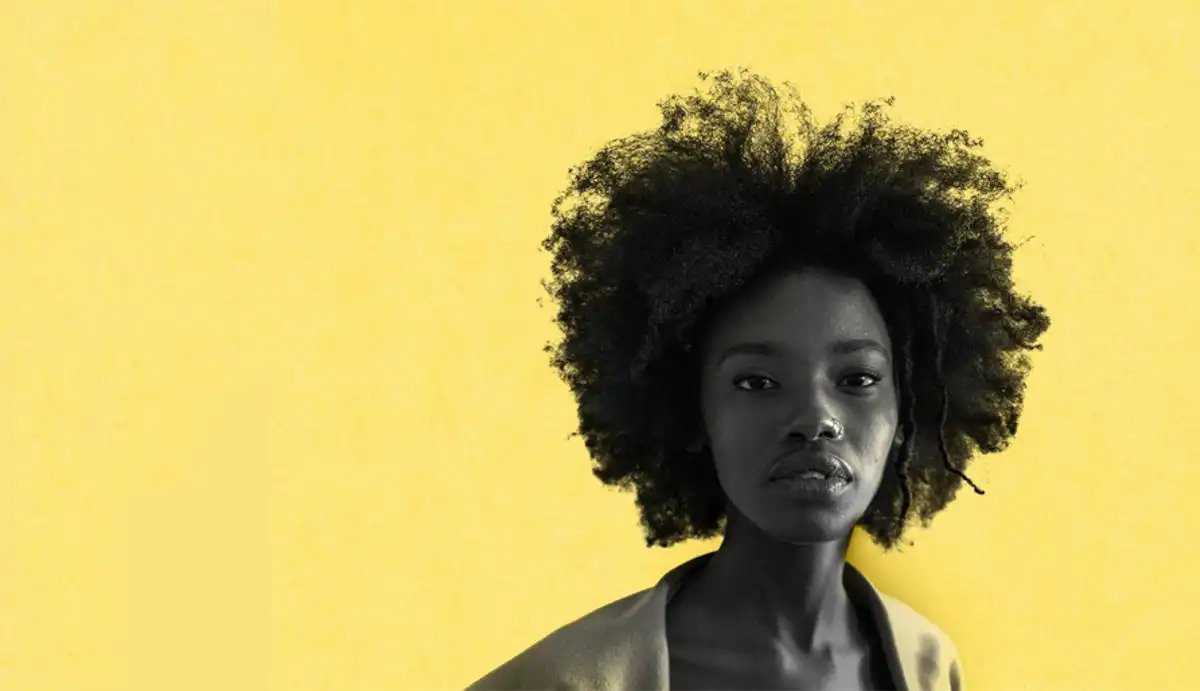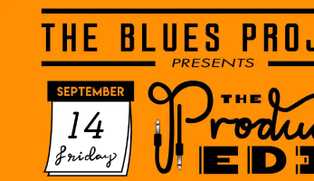There is nothing quite like seeing yourself. Bearing witness to fragments of your own reflection – the parts that only show when light hits your skin at quiet angles – is a big deal in a world built to erase you. When I realised I could find myself on a stage, in theatre that did not require my colourless, genderless pretense, I marvelled at how long I had unconsciously validated my own invisibility. I started to colour myself in, ingesting as many plays and stories as I could, finding new, complex ways to hold the light; writing the dark, ugly shadows and sun kissed glows. There is so much left of me to see. It is still shocking to find stories with moments that pinch at familiar nerves and make me ask: how have I not named this already?
Bush Theatre’s production of Leave Taking made me feel this way. Why did I not know about Winsome Pinnock, a playwright who held so much recognition and space for me to fill myself in? How was this 1987 piece of theatre, so devastatingly relevant today, not a staple in my curriculum as a Black British child?
“Theatre is a sort of moral conscience of a society, an arena where a society can examine itself. If some voices are missing, I don’t think that it’s honestly fulfilling that role and is, in fact, practising a subtle form of censorship.” Winsome Pinnock, The Guardian
Pinnock wrote Leave Taking at the age of 23, and it earned her the title ‘godmother of Black British playwrights’. It is fitting, not because Pinnock was the first to tell a story centring Black British, working class, multi-generational women, but because the play remains incisive and palpable and unapologetically vulnerable 31 years after its inception.
Leave Taking follows a Jamaican-born mother raising her British-born daughters in Deptford. Enid has just received startling news about own her mother back in Jamaica from a dubious source. Her daughter Del repeatedly bunks off her minimum wage job and instead goes raving into the next afternoon, while her other daughter Viv is an A* student who, with maintained focus, will read and write her way out of colonised blackness (though Enid is never quite able to name it this way). Convinced they all need spiritual help, Enid takes her daughters to the local obeah woman for some traditional, Caribbean healing. We bear witness to familial rupture, to stark, life-affirming decisions, and to undeniable love that translates as hurt.
Enid, an ever-working single mother, is unable to understand her daughters’ realities. Viv has an extremely lacking sense of self, brought about by a forced allegiance to a literary canon that does not include anyone who moves or breathes through the world as she does. Del has peeped the lie of British equality, and acts in defiance of a society that decides to give her less than she knows she deserves. I watched these characters move across the stage through a cloud of painful, tragic dissonance. They could not fully see each other, nor find communion by naming the overlapping sources of their differentiated hurts. Leave Taking makes plain the space between black, immigrant mothers’ dreams and ideals, undergirded by their continual sacrifice, and black daughters’ stark realities: that we still, and perhaps will always, have to carve ourselves out. We, too, have inherited permutations of colonialism and anti-blackness. They are just slicker now. They are updated, but they are constant.
“What a doctor know about our illness? Just give you pills to sick you stomach and a doctor certificate. What they know about a black woman soul?”
It is sometimes difficult to determine what within me is inherently mine, and what is purely reactive – especially considering that no black daughter of a black mother inherits a clean slate. It may not always seem that deep, but the global prescience of anti-blackness and misogyny has done something to all of us. Leave Taking is not a perfect piece of theatre; Del and Viv often lack dimension and some of the dialogue felt trite. Pinnock herself has spoken of the limits she felt at the time of writing, and the things she would have felt freer to say had she been afforded the opportunities she’s deserved over the last two decades. But the play captures a very real and enduring feeling, a pinch we share with our mothers. It can be difficult to name, but if you know how to angle the light, you realise it has always been there.
As we stepped out of the theatre and into the Bush’s foyer, a Black British friend remarked that the play we had just seen allowed her to, for the first time, understand her mother, with whom she has a fraught relationship, in a new light. Leave Taking did not need to be perfect to do the work it continues doing today. It stands for me like sacred guide, a foundation upon which to build new, complex stories about life in Britain, centered on Black British, multi-generational immigrant women, centred on the intricacies of our joys, the cut of our traumas, our struggles, our moments of relief.
So much of how Black British women and girls are taught to think about ourselves omits truth. You don’t notice the stories that have been sitting comfortably under your skin until a messenger names them for you. As I write this, I think about when I read Akwaeke Emezi’s Freshwater, a novel full of revelations for this young Igbo Nigerian soul. I am about midway through the book, pages deep into a particular narrative thread, too rapt to think of coming up for air when Emezi’s character says: “Understand this if you understand nothing: it is a powerful thing to be seen.” Somehow, the whole story stops; the stage ceases from merely exhibiting theatre, and the characters begin speaking directly to me. And I feel a little more myself than I did before.




